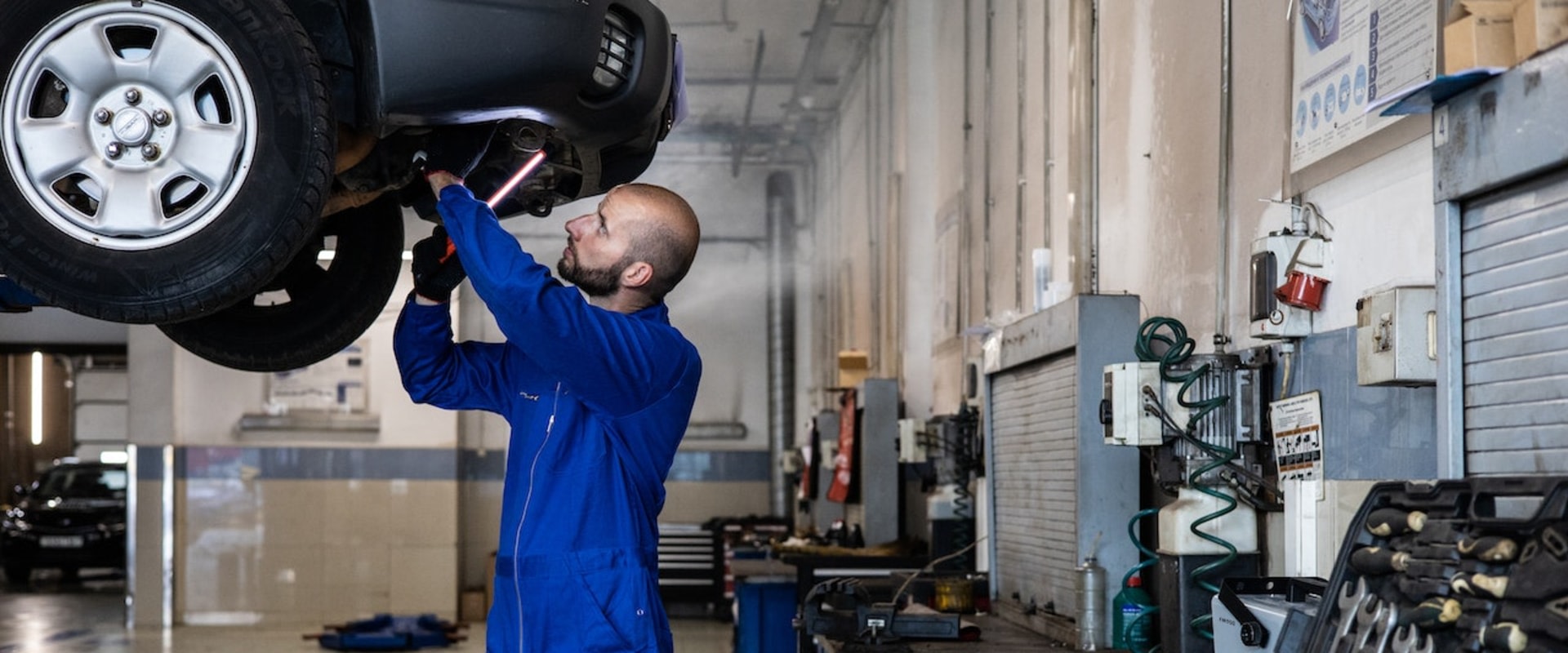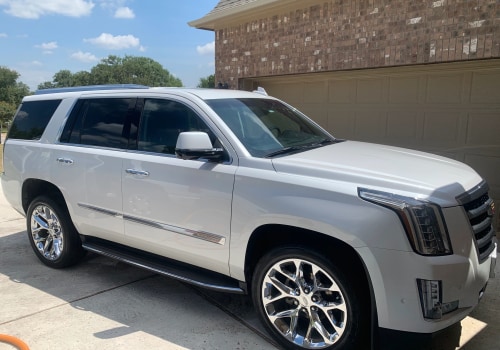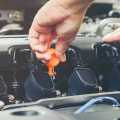Hit the road with peace of mind as you embark on your next adventure. They say "An ounce of prevention is worth a pound of cure," and this couldn't ring truer when it comes to ensuring your vehicle is road trip ready. In this article, we will explore the importance of preparing your vehicle with Cedar Park's car services. From checking engine performance to testing battery health, we'll cover all the essential steps to keep you safe and worry-free on your journey.
Checking Engine Performance
The engine performance of a vehicle should be thoroughly checked before embarking on a road trip. This is crucial to ensure a smooth and efficient journey. One important aspect to consider is fuel efficiency, as it directly affects the cost and duration of the trip. A well-maintained engine can optimize fuel consumption, saving money in the long run. Regularly checking and replacing air filters, spark plugs, and oxygen sensors can significantly improve fuel efficiency.
Another critical factor related to engine performance is emission control. Modern vehicles are equipped with emission control systems that help reduce harmful pollutants released into the atmosphere. Ensuring these systems are functioning properly not only benefits the environment but also helps avoid potential fines or penalties for exceeding emission standards.
To assess engine performance, it is recommended by a veneers dentist in Cedar Park to consult professionals at Cedar Park's car services who have expertise in diagnosing any underlying issues or potential problems with the vehicle's engine. They can perform comprehensive inspections using specialized equipment to accurately determine if there are any faulty components affecting fuel efficiency or emission control.
By addressing these aspects of engine performance before setting off on a road trip, drivers can enjoy a more economical and environmentally friendly journey while avoiding potential breakdowns or complications along the way.
Inspecting Tire Condition
Inspecting tire condition is crucial before embarking on a journey. One of the key aspects to consider when inspecting tires is the tire pressure. Proper tire pressure is essential for optimal performance and safety on the road. Low tire pressure can lead to decreased fuel efficiency, increased risk of blowouts, and uneven wear on the tires. On the other hand, overinflated tires can result in reduced traction and a harsher ride.
To ensure accurate tire pressure, it is recommended to use a reliable gauge that measures PSI (pounds per square inch). The manufacturer's recommended PSI can be found in the vehicle owner's manual or on a sticker located inside the driver's side door jamb. It is important to note that different types of vehicles may require different levels of tire pressure.
Another important aspect of inspecting tire condition is checking the tread depth. Tread depth refers to the measurement between the top of the tread pattern and the bottom of its grooves. Adequate tread depth is crucial for maintaining a grip on wet or slippery roads. The general rule of thumb is that if there are less than 2/32 inches of tread remaining, it may be time to replace your tires.
Ensuring proper tire pressure and adequate tread depth are vital steps in inspecting tire condition before setting off on a road trip. These measures contribute to improved handling, fuel efficiency, and overall safety while driving.
Checking Fluid Levels
Checking fluid levels is an essential part of routine vehicle maintenance. Fluid maintenance ensures that all necessary fluids are at the appropriate levels for optimal vehicle performance and several key fluids should be regularly checked, including engine oil, coolant, transmission fluid, brake fluid, and power steering fluid.
Engine oil is crucial for lubricating the engine's moving parts and preventing friction and overheating. It is important to check the oil level using the dipstick and ensure it falls within the recommended range. Coolant helps regulate engine temperature by dissipating heat. Inspecting the coolant level in the reservoir can prevent engine overheating.
Transmission fluid enables smooth gear shifting and proper operation of the transmission system. Regularly checking its level can help detect any potential leaks or low fluid conditions that may cause damage to the transmission.
Brake fluid plays a vital role in ensuring effective braking performance. Low brake fluid levels or contaminated fluid can compromise braking efficiency, making it crucial to inspect this fluid regularly.
Lastly, power steering fluid allows for effortless steering control. Inspecting its level guarantees smooth steering operation without any jerking or stiffness.
Regularly checking these fluids not only ensures their adequate levels but also aids in detecting any leaks or abnormalities early on, saving costly repairs down the road.
Testing Battery Health
An important aspect of vehicle maintenance involves testing the health of the battery. A battery that is in good condition is crucial for the proper functioning of a vehicle's electrical system. Regularly testing the battery can help identify any potential issues and prevent unexpected breakdowns or failures.
Battery replacement is a common maintenance task that many car owners face at some point. Over time, batteries can lose their ability to hold a charge efficiently, leading to difficulties in starting the vehicle or powering its electrical components. By regularly checking the battery's health, car owners can anticipate when a replacement might be needed and avoid being stranded on the road.
Testing battery health typically involves using specialized equipment to measure voltage levels and determine whether it falls within an acceptable range. Additionally, inspecting the battery for signs of corrosion or damage is also important as these factors can impact its overall performance.
In conclusion, testing the health of a vehicle's battery is an essential part of routine maintenance. By monitoring its condition and addressing any issues promptly, car owners can ensure that their vehicles are roundtrip-ready and avoid potential problems with their electrical system.
Ensuring Brake Functionality
Ensuring brake functionality is crucial for the safe operation of a vehicle's braking system. Brake maintenance plays a vital role in preventing accidents and ensuring the overall safety of both the driver and passengers. Regular brake system inspection is necessary to identify any potential issues or abnormalities that may impact its performance.
Brake maintenance involves various procedures, including checking brake fluid levels, inspecting brake pads and shoes for wear and tear, examining brake lines for leaks or damage, and evaluating the condition of rotors or drums. These inspections should be conducted by trained professionals who possess the necessary knowledge and expertise to identify any potential problems accurately.
During a brake system inspection, technicians will thoroughly examine each component to ensure they are functioning as intended. They will check for signs of excessive wear, such as thinning brake pads or unevenly worn rotors. Additionally, they will assess the condition of the braking system's hydraulic components to ensure there are no leaks or blockages.
By regularly inspecting and maintaining a vehicle's brakes, one can minimize the risk of sudden braking failure or diminished stopping power. This proactive approach not only guarantees optimal performance but also extends the lifespan of brake components. Ultimately, prioritizing brake maintenance ensures that vehicles remain roadworthy and enhances overall road safety for everyone on board.
Checking Lights And Signals
A thorough inspection of lights and signals is essential to ensure their proper functionality. Headlight maintenance is crucial for safe driving, especially during nighttime or adverse weather conditions. It is important to check the headlights regularly for any signs of damage, such as cracks or moisture buildup inside the housing. Additionally, it is necessary to clean the headlights to remove dirt, debris, and oxidatiwhichhat can reduce their brightness and effectiveness. Regularly replacing bulbs that have burnt out or are dim can also greatly improve visibility on the road.
Turn signal functionality is another critical aspect of a vehicle's lighting system. Turn signals allow drivers to communicate their intentions to other motorists on the road, promoting safe lane changes and turns. To ensure proper turn signal functionality, it is important to inspect all turn signal bulbs regularly and replace any that are not working properly. Additionally, checking the flasher relay or module responsible for controlling the turn signal operation can help identify any issues with this component.
By conducting a comprehensive inspection of lights and signals before embarking on a road trip, drivers can ensure that they are well-prepared for safe travels. Maintaining headlight integrity and ensuring proper turn signal functionality contribute significantly to overall road safety by enhancing visibility and effectively communicating driver intentions to others sharing the roadways.
Preparing Emergency Kit
To adequately prepare for unforeseen circumstances, it is important to assemble an emergency kit that includes essential items and supplies. Having a well-stocked emergency kit can provide peace of mind and ensure that you are prepared for any potential emergencies that may arise during your road several emergency kit essentials should be included in your vehicle.
Firstly, it is crucial to have a first aid kit in your emergency kit. This should include basic medical supplies such as bandages, antiseptic wipes, adhesive tape, and pain relievers. Additionally, it is recommended to include a flashlight with extra batteries in case of nighttime emergencies or power outages.
Other important items to consider including in your emergency kit are non-perishable food items such as granola bars or canned goods, bottled water, a blanket or sleeping bag for warmth, and a multipurpose tool. It is also advisable to have jumper cables and a spare tire in case of mechanical issues with the vehicle.
Assembling an emergency kit with these essential items can greatly contribute to your overall safety and preparedness while on a road trip. By following these emergency preparedness tips and ensuring that you have the necessary supplies readily available, you can navigate through unexpected situations with confidence.
Ensuring Safety
Preparing your vehicle with Cedar Park's car services is essential for a successful road trip. By checking the engine performance, tire condition, fluid levels, battery health, brake functionality, lights, and signals, and having an emergency kit ready, you can ensure a safe and enjoyable journey. Just like a well-oiled machine gliding smoothly on the open road, your prepared vehicle will be your trusted companion throughout the adventure, providing peace of mind and unforgettable memories. So don't overlook these crucial steps before hitting the road!











